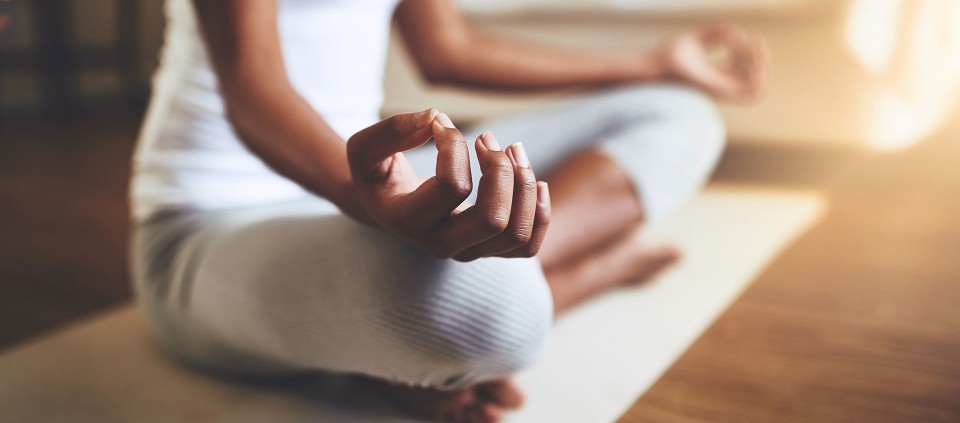Seven Skillful Mindfulness Practices to Transform Habits

The practice of mindfulness has been shown to be a highly effective approach for alleviating stress, anxiety, and depression, as well as a host of other conditions. Applying mindfulness to changing harmful or unhelpful habits offers similar potential. Mindfulness brings the stimulus, urge, or craving—and the habitual behaviors they trigger—into conscious awareness. For 2,500 years, meditators have practiced mindfulness as a path to letting go of painful, afflictive, and habitual mind states and emotions. This history is now being supported by a growing body of scientific research that points to the ways in which mindfulness can be an indispensable key to habit change and formation.
Here are seven practical skills to support changing unwanted or harmful habits and/or cultivating more healthy and helpful ones.
1. Learning to identify unhealthy or unwanted habits, seeing how they are not serving your needs, and consciously establishing an intention to change and a course of action to effect change. This skill helps you connect with your deepest wishes for yourself, see the harm caused by unhealthy habits, and bring your actions into alignment with your intentions.
2. Relaxing, opening to your experience and welcoming the "guests"—the good, the bad, and the ugly in your experience. Cultivating a relaxed and non-judging awareness of your experience in body, heart, and mind helps to bring awareness to the stimuli that fuel unwanted habits and to stay with the cravings and challenging emotions that, without awareness, can lead to unhealthy behaviors.
3. Cultivating attitudes and qualities that support mindfulness, particularly attitudes of kindness, curiosity, and acceptance. When you bring these attitudes to established habits, you simply acknowledge behaviors and thoughts as they are without making them 'wrong' or 'bad', and avoid adding judgment and harsh criticism to habitual behaviors, which often serves to perpetuate and reinforce them.
4. Focusing your attention through mindfulness of breathing (or other object of meditation) and learning to return to the breath when you find yourself on autopilot or lost in thought. Developing focus and concentration helps counter the tendency for the mind to go on autopilot and into habitual patterns—and returning non-judgmentally helps create new, more healthy patterns.
5. Bringing awareness to the thoughts and beliefs that often underlie established habit patterns. This skill helps you become aware and loosen the hold of the often deep-seated beliefs and narratives that can undergird habits of thought and action and allows you to open to thoughts without identifying with or being swept up in them.
6. Learning to "ride the waves" of difficult experiences and developing the capacity to stay present with challenging bodily sensations, emotions and mind states. This skill helps you learn that you can open to unpleasant or difficult experiences without going automatically into unhealthy or unwanted behaviors.
7. Developing beneficial states of heart and mind—particularly loving-kindness and self-compassion—that help you create space to open to difficult or painful experiences. This skill is essential for working with challenging experiences—helping you open space in the mind to stay with painful experiences and developing the skills and capacity to deal kindly and wisely with challenging emotions and mind states.
Mindfulness is helpful in every situation. However, it’s important to note that mindfulness or specific meditation practices may not always be the place to start. There may be times when being present with what we’re feeling is too much to bear. For example, if you’re experiencing a panic attack, rather than sitting still and bringing awareness to your breath it may be a better choice to take a walk, or talk with a trusted friend or health professional. It’s important to establish a level of stability and resilience to be able to open to pain or challenging emotions with kindness. The practices provided in this book help to calm the body and mind, but you are the best judge of whether a particular practice or approach is useful to you at any given time. Mindfulness is a great support in developing and cultivating this kind of discernment.
Also, keep in mind that mindfulness is not a magic formula that immediately transforms long-established patterns. It’s a training and a practice that over time leads to change through awareness and conscious choice.
Find out about upcoming programs with Hugh Byrne at Kripalu.
Excerpted with permission from The Here-and-Now Habit: How Mindfulness Can Help You Break Unhealthy Habits Once and for All, © 2016, by Hugh Byrne.
Hugh Byrne, PhD, a teacher with the Insight Meditation Community of Washington and author of The Here-and-Now Habit and Habit Swap has taught mindfulness meditation since 2000.
Full Bio and Programs